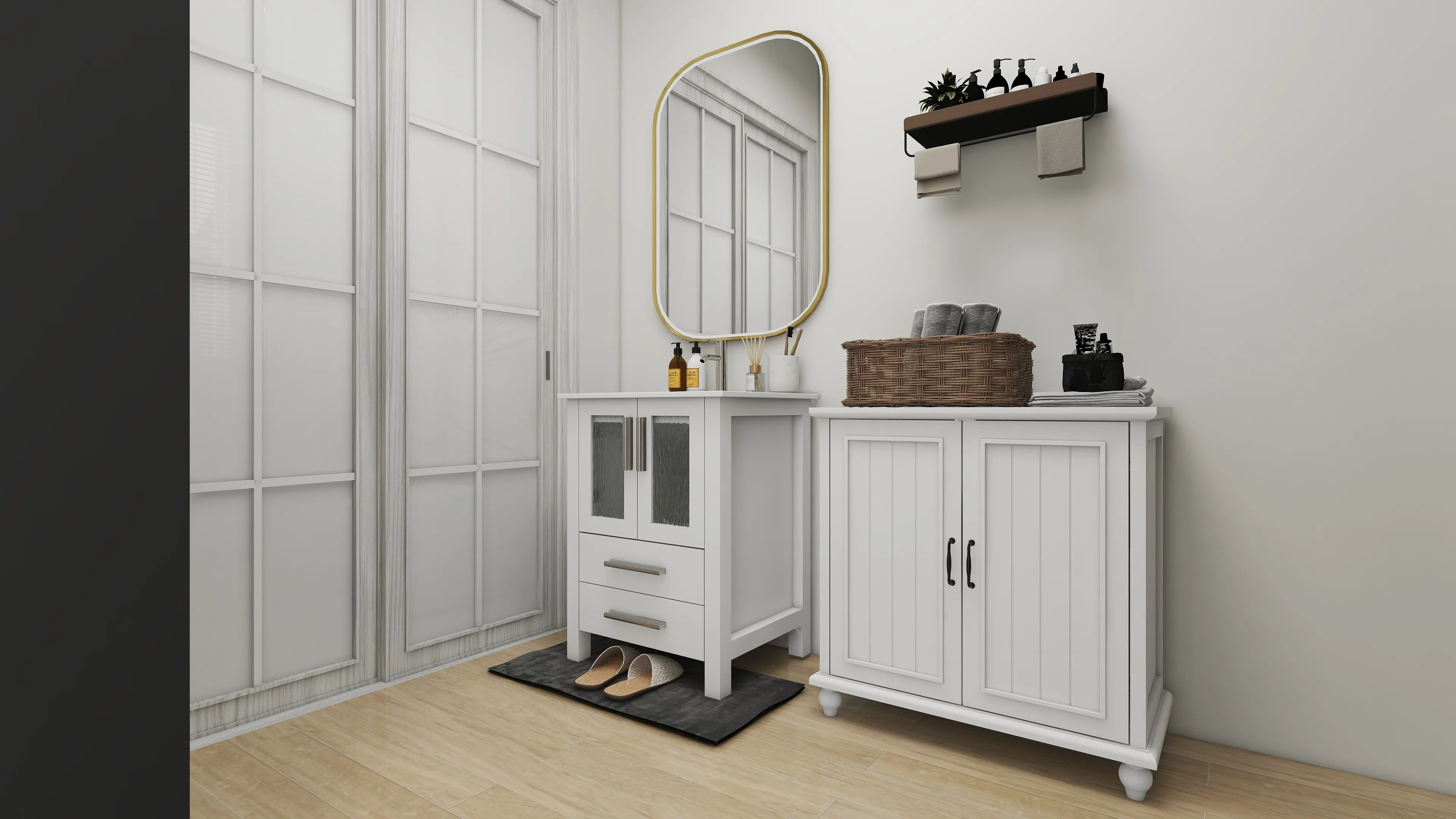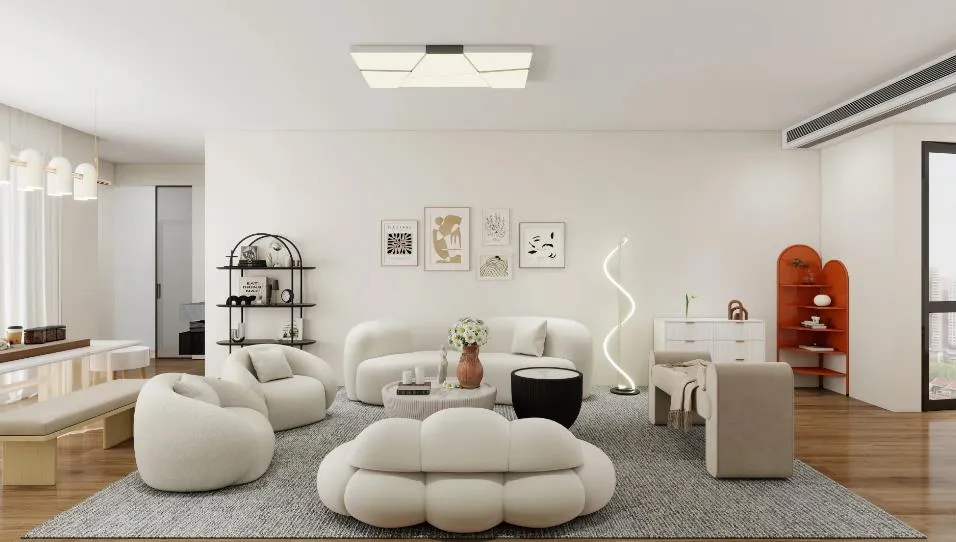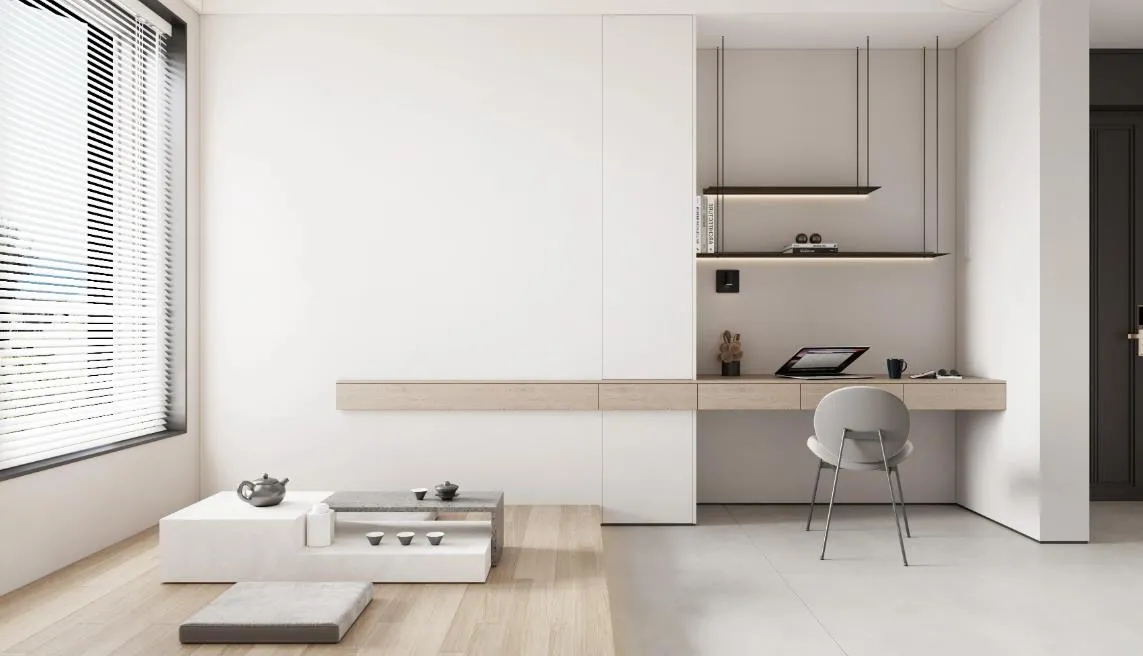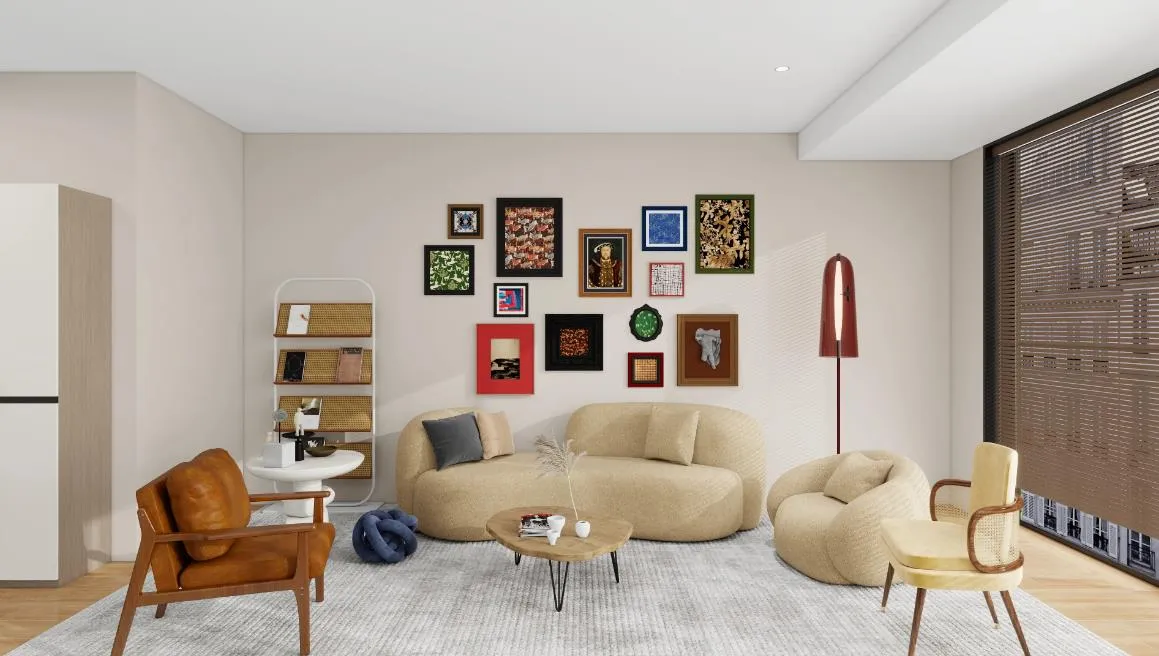What Will The Concrete Prices Per Yard Be in 2025?
The concrete prices per yard varies depending on the region, concrete strength grade (such as C25, C30), purpose (foundation, floor, road, etc.) and market fluctuations. Next, we will analyze the concrete prices per yard from the perspective of concrete type and concrete-related influencing factors.
You can find ready-made answers to the concrete prices per yard below based on your purpose and concrete type.
Concrete can be divided into many types according to its use, strength, composition and construction process. The following is a summary of the common types of concrete so that you can choose the right type according to your needs.
1. Classification By Strength Grade (Common in Building Structure Design)
- Ordinary concrete, general strength 2500-3500 PSI or C20-C30, used for floor slabs, foundations, pavements, etc.
- High-strength concrete, above 4000 PSI, C35 and above, mostly used in high-rise buildings, bridges, heavy structures
- Low-strength concrete, below 2000 PSI, used for non-load-bearing structures or temporary facilities
2.Classification By Constituent Materials
- Ordinary silicate concrete,which is the most common type of concrete.
- Lightweight concrete, adding expanded perlite, foam, etc., is used for insulation, roofing, partitions
- Heavy concrete, adding heavy aggregates such as iron ore, is used in nuclear facilities, shielding layers, etc.
- Fiber concrete, adding steel fiber, glass fiber, etc., to enhance crack resistance
3. Classification By Function Or Performance
- Self-compacting concrete (SCC), no need for vibration, good fluidity
- Impermeable concrete, used for pools and basements
- High-temperature resistant concrete, used for kilns and chimneys
- Antifreeze concrete, suitable for cold areas
- Quick-hardening concrete, fast construction scenes
4. Classification By Use
- Structural concrete, used for main structures such as beams, columns, walls, and floor slabs
- Decorative concrete, used for floors and walls, color or surface can be customized
- Precast concrete, prefabricated in factories (such as floor slabs, pipe segments)
5. Special Popular Styles
- Bare concrete (exposed concrete), no need for surface decoration, high-quality texture
- Permeable concrete, mostly used for sidewalks and landscape projects
- Foamed concrete, lightweight, used for backfill or insulation
Based On The Project Size, How Much Does Concrete Cost?
1. Residential foundation and driveway
The scale usually includes residential foundation, driveway, walkway, etc. The amount requires about 5 to 20 cubic yards of concrete. Concrete prices per yard are about $120 to $180, depending on the complexity of the project and the concrete grade. Cost estimate, if 10 cubic yards of concrete are used, the cost is about $1,200 to $1,800.
2. Commercial buildings (stores, office buildings, warehouses)
A large amount of concrete is required, usually for floors, foundations, parking lots, etc. The amount requires about 20 to 200 cubic yards of concrete. Cost per yard of concrete is about $130 to $200, depending on the concrete grade (such as 3,000 PSI to 5,000 PSI) and region. Cost estimate, if 100 cubic yards of concrete are used, the cost is between $13,000 and $20,000.
3. Road and sidewalk construction
Mainly used for urban roads, sidewalks, parking lots, etc. Depending on the length and width of the road, 100 to 1,000 cubic yards of concrete are usually required. The cost of concrete per yard is about $120 to $180. If the project requires 500 cubic yards of concrete, the cost is between $60,000 and $90,000.
4. Bridge and Infrastructure Engineering
Large-scale infrastructure projects, such as bridges, tunnels, dams, etc., use a large amount of concrete. The amount usually requires 500 to 5,000 cubic yards of concrete, or even more. The cost of concrete per yard is about $140 to $250, depending on the complexity of the project, the strength requirements, and the delivery method. If the project requires 1,000 cubic yards of concrete, the cost is between $140,000 and $250,000.
5. Swimming Pool Construction
Applicable to the construction of private or commercial swimming pools. The amount is about 10 to 50 cubic yards of concrete. Concrete prices per yard are about $130 to $200. Cost estimate, if the project requires 20 cubic yards of concrete, the cost is about $2,600 to $4,000.
6. Small renovation and repair projects
Used for small projects such as patios, floor paving, wall repairs, etc. The amount usually requires 1 to 10 cubic yards of concrete. The price of concrete per yard is about $120 to $180. Cost estimate, using 5 cubic yards of concrete, the cost is about $600 to $900.
According to The Strength of Concrete
In the United States, concrete prices vary depending on the strength grade of the concrete (usually measured in PSI). Higher strength concrete is usually more expensive.
7.2000 PSI Concrete
As of 2025, in the United States, 2000 psi concrete price is generally between $125 and $140 per cubic yard, and the specific 2000 psi concrete price will vary depending on factors such as region, supplier, order quantity, and transportation distance.
8. 3,000 PSI concrete (normal strength concrete)
Applicable projects include general residential foundations, driveways, trails, etc. Price of concrete per yard is about $120 to $160. This is the most commonly used concrete strength and is suitable for most foundation construction projects.
9. 4,000 PSI concrete (medium strength concrete)
Applicable projects include high-rise building foundations, garage floors, commercial buildings, etc. Concrete prices per yard is about $140 to $180. Provides stronger bearing capacity and is suitable for areas that require higher strength.
10.5,000 PSI concrete (high strength concrete)
Applicable projects include bridges, roads, and infrastructure projects with high pressure requirements. Concrete prices per yard is about $160 to $200. More durable than 4,000 PSI concrete, it is usually used for special bearing requirements or high pressure environments.
11.6,000 PSI concrete (ultra-high strength concrete)
Applicable projects include buildings under extreme conditions, special infrastructure such as nuclear power plants. The price of concrete per yard is about $180 to $220. It is suitable for special occasions that require extremely high strength and durability.
12. High-strength concrete (7,000 PSI and above)
Applicable projects include certain high-pressure environments, industrial land, special structures, etc. The price of concrete per yard is about $200 to $250 or more. It is usually used in special buildings and places with high pressure loads, such as underground garages, transportation facilities, etc.
According to The Transportation Distance
In the United States, the price of concrete depends not only on the type and strength of concrete, but also on the distance of transportation. Generally speaking, the cost of concrete transportation is calculated based on the delivery distance and the distance between the construction site and the concrete mixing plant.
13. Standard transportation (within about 20 miles from the mixing plant)
The cost of concrete per yard is about $120 to $180. Most regional concrete suppliers provide standard transportation services within 20 miles, and the transportation costs are usually included in the price per cubic yard.
14. Medium distance transportation (20 to 50 miles)
The additional cost per cubic yard is about $9 to $15 per mile. The total price per cubic yard is that if the project is 30 miles away from the mixing plant, the price per cubic yard may increase by $30 to $45, that is, $150 to $225 per cubic yard. When the distance is farther from the mixing plant, the supplier may charge additional transportation fees based on the actual transportation distance.
15. Long distance transportation (50 to 100 miles)
The additional cost per cubic yard is about $15 to $30 per mile. Total price per cubic yard, for example, a project 80 miles from a batch plant may add an additional $120 to $240, resulting in a total price per cubic yard between $240 and $420. For long distance transportation, concrete suppliers will add significant transportation fees, especially when the project is far from a major batch plant.
16. Very long transportation distances (over 100 miles)
The additional cost per cubic yard is about $30 to $50 per mile or more. Total price per cubic yard, if the project needs to be transported more than 100 miles, the transportation surcharge may significantly increase the price per cubic yard, possibly to $300 to $500 or more. Extra long distance transportation often adds many additional costs, especially in remote areas far from major cities or concrete batch plants.
According to The Type of Transport
Depending on the type of concrete transportation, the cost per yard of concrete will vary, mainly related to the convenience of transportation, cost, equipment type, etc.
17. Ready-Mix Truck Delivery
The most common method uses a rotary mixer tank truck, suitable for cities and small and medium-sized projects. The transportation range is about 20-30 miles (extra charges apply if the range is exceeded). The basic price is about $120-$180/yard. The additional transportation fee (over-distance) is about $8-$15/mile. The price is stable and the efficiency is high, suitable for most residential and commercial construction.
18. Concrete Pumping
Used in high-rise buildings, backyards and other areas that are difficult to pour directly, pumping equipment is required. The price of concrete is the same as standard transportation ($120-$180/yard). The pumping service fee is about $300-$1,200/project, or about $3-$10/yard. It is suitable for construction areas that are difficult to access, and the overall cost is higher.
19. Short Load Delivery
When less than 4 yards of concrete are needed (e.g. 1-3 yards), it is considered a short load delivery. A surcharge of $40–$120/yard is common. Concrete prices per yard may reach $180–$250/yard. Suitable for small repairs, trails, fence foundations, etc., but the unit price is high.
20. U-Cart or Tow-Behind Trailer
Customers pick up concrete and use trailers to transport it. It is usually used for small DIY projects. The price range is about $100–$150/yard (may include a usage fee within 2 hours). The trailer deposit or rental is about $50–$100 extra. Flexible and suitable for do-it-yourself home projects, but it needs to be operated with caution.
Based On Seasonal Changes
Concrete prices do fluctuate with the seasons, especially in areas with distinct seasons, such as the United States.
21.Spring & Summer (March – August)
Prices are slightly higher. Spring and summer are peak demand seasons. This is the peak period for construction, when the weather is ideal for pouring concrete. The market is in high demand and supply is tight, which leads to higher prices. Special additives (such as retarders) may be required at high temperatures, which increases costs. The average price of concrete per yard increases by about 5% to 15%. Conventional concrete may increase from $130 per yard to $150 or more.
22.Fall (September – November)
Prices tend to stabilize. Construction tapers off, and the market balances supply and demand. The weather is still good, but some projects are nearing the end of the year. The price of concrete per yard remains near the annual average, making it one of the more ideal construction seasons.
23.Winter (December – February)
Prices may increase or be discounted. Cold weather limits construction, reduces demand, and some suppliers offer discounts to maintain orders. But winter construction often requires heating the concrete or adding early strength agents, which can increase the cost per yard. Some areas even charge a "winter construction fee."Concrete prices per yard may drop slightly ($110–$130/yard) for a few projects. Projects that require a winter formula may see the cost of concrete per yard rise to $160–$200/yard.
Concrete Installation Cost 2025
24.Concrete floor (ordinary ground)
2025 concrete prices ,cost of concrete per yard is about $6 – $9.50/square foot. Suitable projects include sidewalks, driveways, patios, etc. The price includes materials and foundation installation, and is suitable for standard floors with a thickness of 4 to 6 inches.
25.Concrete driveway
2025 concrete prices about ordinary gray concrete driveway costs about $5 – $7/square foot. Decorative concrete driveway costs about $8 – $18/square foot. Decorative concrete includes dyed, stamped and other designs, suitable for enhancing the appearance of the home.
26.Concrete patio (Patio)
concrete cost per cubic yard 2025 basic design is about $5 – $10/square foot. Stamped/stained decoration is about $10 – $15/square foot. The price depends on the complexity of the design and the decorative requirements.
27.Concrete foundation
The average price is about $6 – $14/square foot. The foundation usually requires thicker concrete and steel reinforcement, suitable for residential or commercial buildings.
28.Commercial Concrete Projects
Standard thickness (4–6 inches) approximately $4 – $8/sq. ft. Heavy duty (industrial use) $10 – $15/sq. ft. Pricing for commercial projects is affected by project size, thickness, and reinforcement requirements.
29.Additional Costs (may be involved)
Old concrete removal approximately $1 – $4/sq. ft. Ground preparation (compacting, cleaning) approximately $1 – $3/sq. ft. Decorative treatments (stamping, staining) approximately additional $2 – $25/sq. ft. Steel reinforcement may be required for an additional fee.
At the same time, the connection between concrete and home decoration design is getting closer and closer, especially in modern, industrial, minimalist and other styles. Concrete is no longer just a building structure material, but also a design language.
Floor And Wall Design Materials
Polished concrete floors are common in minimalist and industrial style houses, with natural texture and easy to clean. Plain concrete walls can be used as background walls to show texture and modernity. Suitable styles include minimalism, industrial style, and Japanese wabi-sabi style.

Concrete Home Products
Concrete dining tables, coffee tables, washbasins, and chandeliers have unique touches and natural textures. They can be matched with wood and metal to enhance the sense of space hierarchy and design. Suitable styles include modern, Nordic, and log styles.

Spatial Structure Performance
In open kitchens, concrete can be used as the surface material of bars and islands, which are simple and neat; stairs, window sills, countertop edges, etc. can also use cast concrete custom structures.

Indoor And Outdoor Integrated Design
Using concrete in balconies, terraces, and courtyards can achieve a natural extension of the "indoor and outdoor style transition"; integrated floors or walls can improve the integrity and visual extension of the space.

Conclusion
Concrete is not only used as a structural material in home decoration design, but is also often used for decoration on floors, walls, countertops, etc., creating a modern, minimalist or industrial style space atmosphere. Its natural texture is compatible with a variety of materials, combining beauty and practicality, reflecting the modern aesthetics and functionality of home design.
However, EClife has always been committed to home decoration design. If you have any design inspiration or ideas, you can log in to EClife to communicate with the designer.
Concrete Prices Per Yard FAQs
1. How do I find the right concrete contractor?
There are many ways to choose the right concrete contractor. Give priority to local recommendations or search for contractors with high ratings through the platform. Make sure they are licensed and insured, and check past project cases and user reviews. It is best to contact 2-3 contractors for on-site evaluation and quotation comparison, and make a comprehensive judgment from construction experience, service attitude to construction plan.
2. Under what circumstances will the price of concrete per yard be higher?
The price per yard of concrete is usually higher when the construction site is difficult to access (such as small space or complex terrain), customized concrete (such as high strength or special additives) is used, the transportation distance is long, the order quantity is small (usually less than 4 yards), or the construction season is in extremely cold or hot periods. In addition, if additional services are required, such as pumping, fast construction or expedited delivery, it will also increase the cost.
3. Under what circumstances will the concrete prices per yard be lower?
The lower price per yard of concrete usually includes large-volume orders (such as more than 10 yards), because bulk transportation can dilute the unit price; the project site is close to the concrete mixing plant, which has lower transportation costs; the use of standard strength (such as 3000 PSI) and no special additives concrete, which has lower production costs; in addition, when placing orders during the construction off-season (such as autumn and winter when the climate is moderate), suppliers often offer more competitive prices to promote order volume. If you can work with contractors or suppliers for a long time, you may also be able to get discounts.
4. What is the average price of concrete per yard in the United States?
As of 2025, the cost per yard of concrete in an average residential project in the United States is between $125–$170, and the price of high-strength concrete or concrete with added fibers and dyes may reach $180–$250/yard. This price usually does not include pumping fees, construction fees, or transportation surcharges, only the raw materials plus basic delivery costs.
5. How do I determine the concrete price per yard near me?
You can get an accurate quote by contacting a local concrete supplier (Ready-Mix Concrete Supplier), or you can use your zip code for local estimates on websites such as HomeAdvisor or Angi. In addition, when you ask for a construction quote from a nearby contractor, they usually provide a detailed material cost table to help you determine the approximate price per yard of concrete in your area.

_1720581811031.webp)





_1753683059938.webp)

